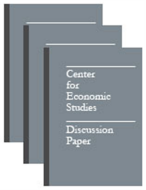Recall and Response: Relationship Adjustments to Adverse Information Shocks
Recall and Response: Relationship Adjustments to Adverse Information Shocks
Abstract
How resilient are U.S. buyer-foreign supplier relationships to new information about product defects? We construct a novel dataset of U.S. consumer-product recalls sourced from foreign suppliers between 1995 and 2013. Using an event-study approach, we find that compared to control relationships, buyers that experience recalls temporarily reduce their probability of trading with the suppliers of the recalled products by 17%. The reduction is much larger for new than established buyer–supplier relationships. Buyers that experience a recall are more likely to add other suppliers to their portfolios, diversifying supplier-specific risk in the aftermath of a recall; this effect, too, is larger for buyers impacted by recalls in new relationships. There is a long lag – up to two years – before diversification, consistent with a high cost of establishing new relationships.




